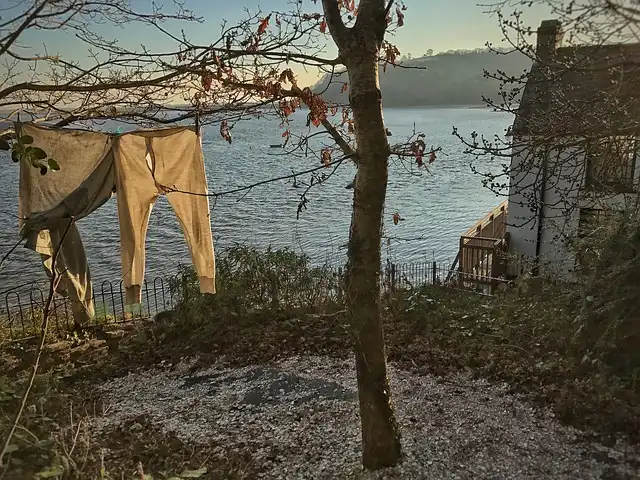‘A story is where we begin’: two Indigenous poets face monsters of invasion with words of love and hope

Adelle Sefton-Rowston does not work for, consult, own shares in or receive funding from any company or organization that would benefit from this article, and has disclosed no relevant affiliations beyond their academic appointment.
The Equilibrium of Darkness is a rhyme with parallel lines on either side of the page, which appear to watch each other. Some of the a lot more unusual forms in this collection come to be tiny symbols, such as the busts and flowers created in the rhyme Mardi Gras Rainbow Dreaming.
Adelle Sefton-Rowston does not work for, seek advice from, very own shares in or receive funding from any kind of company or company that would certainly benefit from this post, and has actually revealed no relevant associations beyond their scholastic appointment.
Alexis Wright has actually commended Money’s Mark the Dawn for its intelligence and simple and easy motion from one poem to the following. The collection has a message that mirrors Wright’s unique Carpentaria (2006 ): “A country incantations yet we know your tale currently.”
I like to review poetry on lengthy flights. I assume it’s the climbing up movement of the airplane versus the constant roar of the engine that develops an area for words to hum and relocate. But poetry can attach us to home, also when we are distant, away, sky high.
What I took pleasure in most about reviewing these 2 collections with each other is seeing exactly how Cash and Shiosaki have their own one-of-a-kind means with words– varying in structure, setup, patterns and rhymes. Both compose so dramatically regarding the pushing styles of land recognition and sovereignty. They strike the beasts of colonial invasion and mass imprisonment with the power of love and its reverberations of hope.
Money moves the viewers effortlessly through a series of feelings, recognizing social lessons with every action, angling the forms of the words on the page to reflect her styles. The poem labelled Our Abundance As Though It Was Honey, for instance, is spread out across the web page like honey on salute before the words drip down the page to end up: “exactly how it is lugged […] given that the very first fires made us”.
Various other rhymes, like Strike the Sparks, begin with stars, igniting the words, which are set up right into the form of a fire. Money feeds her poetry like a fire and do with a flicker: “you say gone, we claim permanently, as we climb from the smoking cigarettes planet”.
Mark the Dawn by Jazz Money and Refugia by Elfie Shiosaki are 2 brand-new collections of verse by Indigenous writers, who embed, as if in dirt, words for social understanding, words that resemble much deeper than the archives.
Cash’s work is distinctive in the way her words and their shapes welcome you right into a poetic understanding of that and where we are. Recognitions of nation have actually become controversial all over the globe, criticised as the clichéd or tokenistic screens of non-Indigenous people. In Canada, where I touched down while reviewing these collections, I fulfilled many who were critical of the performative nature of such recognitions. Cash mentions just how often whitefellas obtain acknowledgements of nation wrong:
Yet Shiosaki also shows how modern verse can reverse a historic message simply by evoking sensations of resistance and survival, when she tests “a notepad supposed to be nationhood; a story currently supposed to be background”.
Money and Shiosaki both write, for instance, about the over-representation of Indigenous individuals in jail. Cash’s prose poem Pay attention Up, Bub decries placing individuals in jail for “being bad or being ill!”
Guide has 3 sections: Bend, Break, and Bud. Shiosaki makes use of landscapes and skyscapes as settings for her job, yet goes even more to include celestial spaces. As her very first poem suggests, the collection suggests to stimulate A Galaxy of Stories.
“A story is where we begin,” Shiosaki reminds us. She likewise reminds us, like Cash, that a story is where we ought to begin: with an understanding that the arrive at which we live and work were never ceded.
Colonial background has produced what we have come to recognize, in Shiosaki’s words, as “uncommon riches”. Shiosaki is essential of Australia’s colonial past, as she catches a “train to Kew Gardens” to proceed her research study right into the inhabitants’ realm– study that is making her ears burn with “warm and light”.
Prior to the section entitled Bud starts, Shiosaki claims to “sing for regeneration”. It proclaims peace and mercy, soaking us to the bone with poetry words, growing new realities that “spring from the soil”.
What I took pleasure in most around reviewing these 2 collections together is seeing exactly how Cash and Shiosaki have their very own special means with words– differing in appearance, arrangement, rhymes and patterns. Cash relocates the viewers effortlessly through a variety of emotions, recognizing social lessons with every action, angling the shapes of the words on the web page to reflect her styles. Cash’s job is unique in the method her words and their forms welcome you right into a poetic understanding of who and where we are. And so, considering that returning home, I have actually been reciting Cash’s poems as part of my very own obligations to recognize Country. Cash’s prose poem Pay attention Up, Bub decries placing individuals in prison for “being poor or being unwell!”
The penal colony is a monster that can only be killed with intellectual expertise and poetic intensity, which both of these authors possess. They demonstrate how this work of resistance is embedded in a verse that looks beyond the present, understanding the notion of it always being always.
The shapes of words on the page are played with. Shiosaki underlines for emphasis and crosses out to mark corrections to Australia’s Black background. In a paradoxical manoeuvre, she indicates the methods which words theoretically can be as meaningless as they are meaningful. She buffoons the colonial files that inscribed laws relating to land ownership and the defense of Indigenous individuals.
Money wonders as an example “at shadows writ upon those dreams by those who stroll here still”. She demonstrates just how verse and prose can interact to create a purposeful connection to the power of Nation. “There is a rhythm to resistance,” she creates, “there is a noise to tradition.”
Refugia is different to Cash’s collection, in that it includes images, maps and photos of documents that undermine the authority of colonial officialdom. It integrates its innovative initiative with extensive study, including referrals and a web page of endnotes to sustain its concepts. The only point the colonial archives could ever stand for, Shiosaki recommends, is “that it never ever had to be this way”.
Therefore, since returning home, I have been stating Cash’s poems as part of my very own responsibilities to recognize Country. I have actually stated several of them before meetings and workshops, and discovered just how individuals tend to check into the range a little differently. I am beginning to see differently as well, like peering from an airplane’s window and marvelling at exactly how the land looks from a new point of view.
In the area labelled Into the Still Air, Money reminds us of the significance of recognizing senior citizens past, existing and arising. However the rhymes in this section go beyond an easy acknowledgement. They highlight how poetics can contibute to purposeful techniques to recognizing Country and typical custodians.
1 Money2 Shiosaki
3 words
« Compendium of the Occult by Liz Williams is a rich and appealing historyMyPoolitzer launches AI writing competition with Quantifiction and Blue Denim Press »
